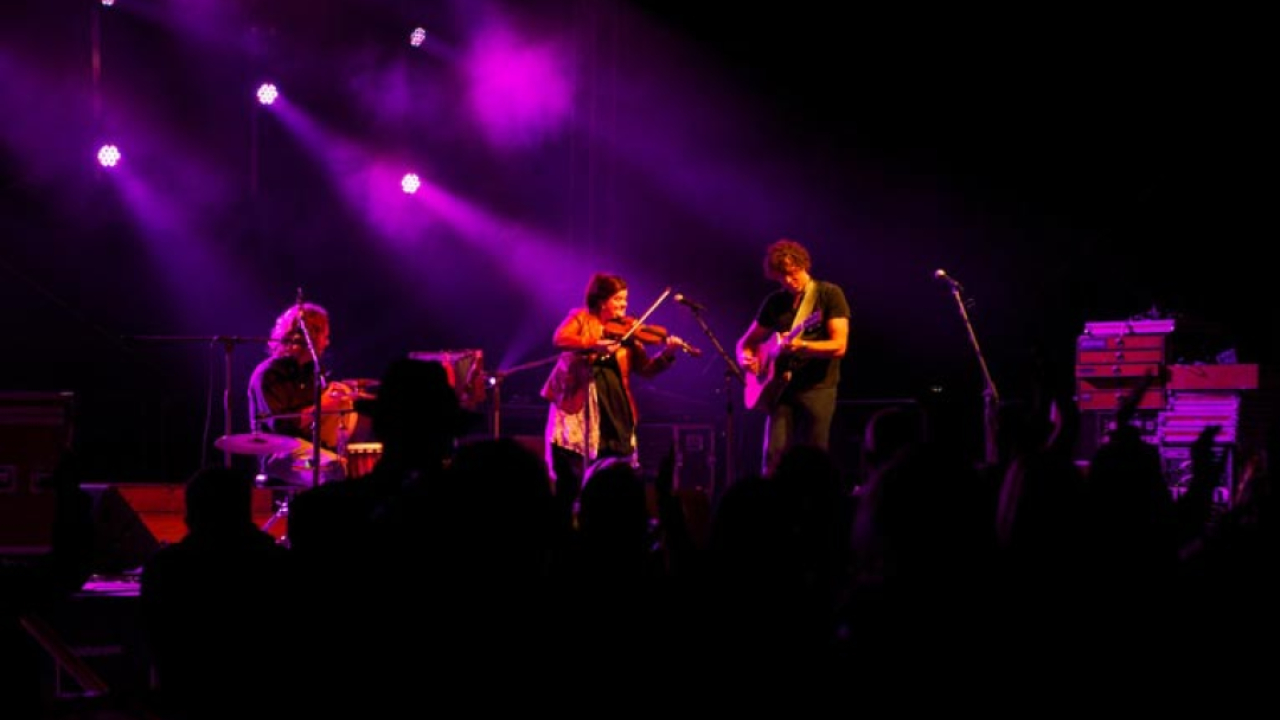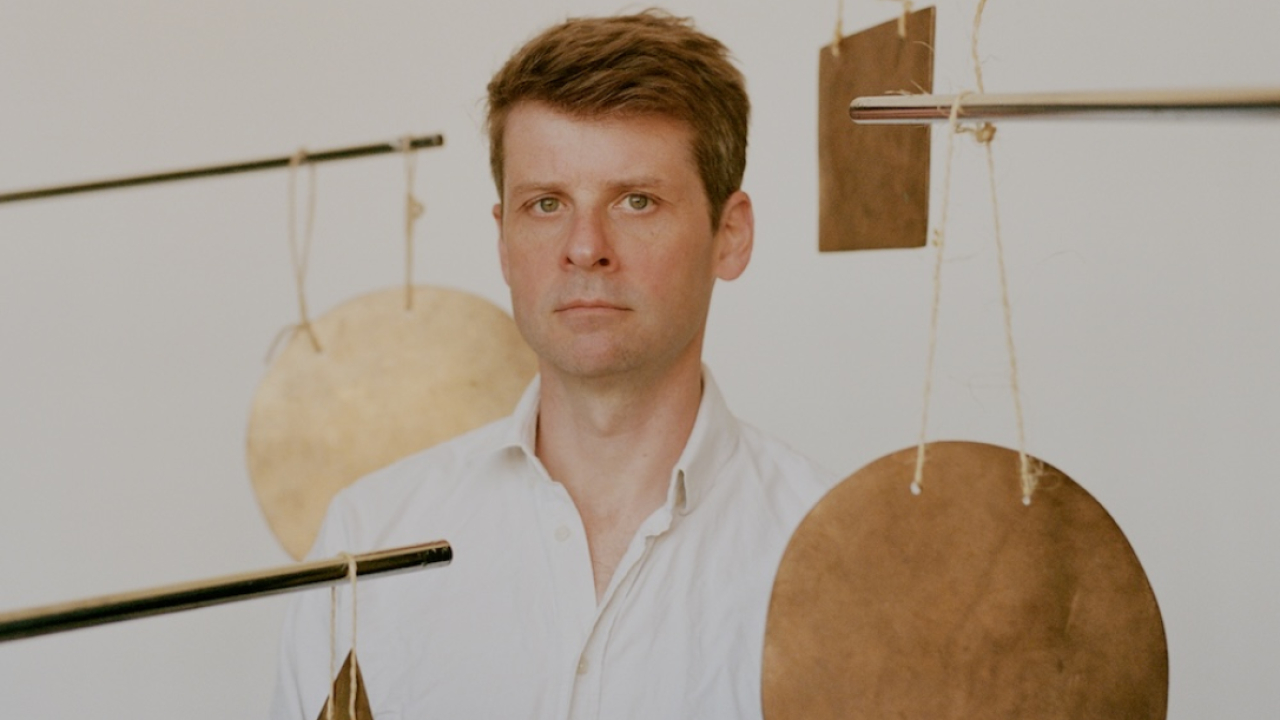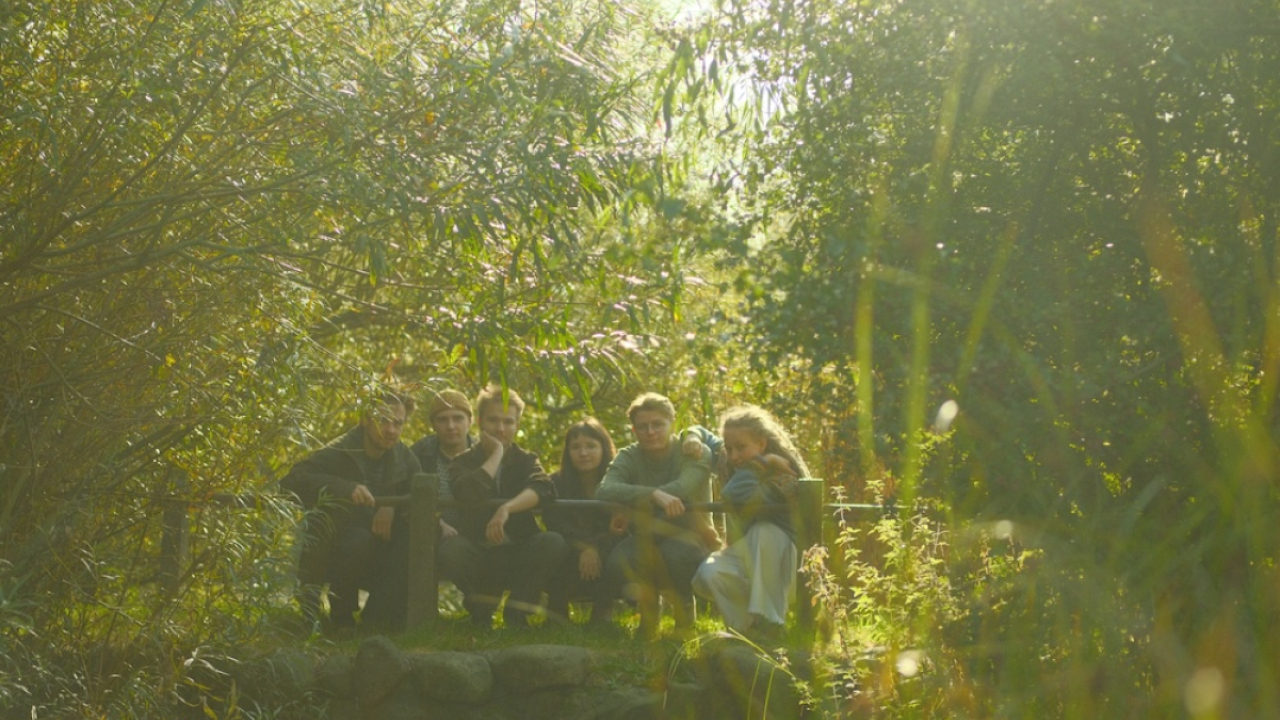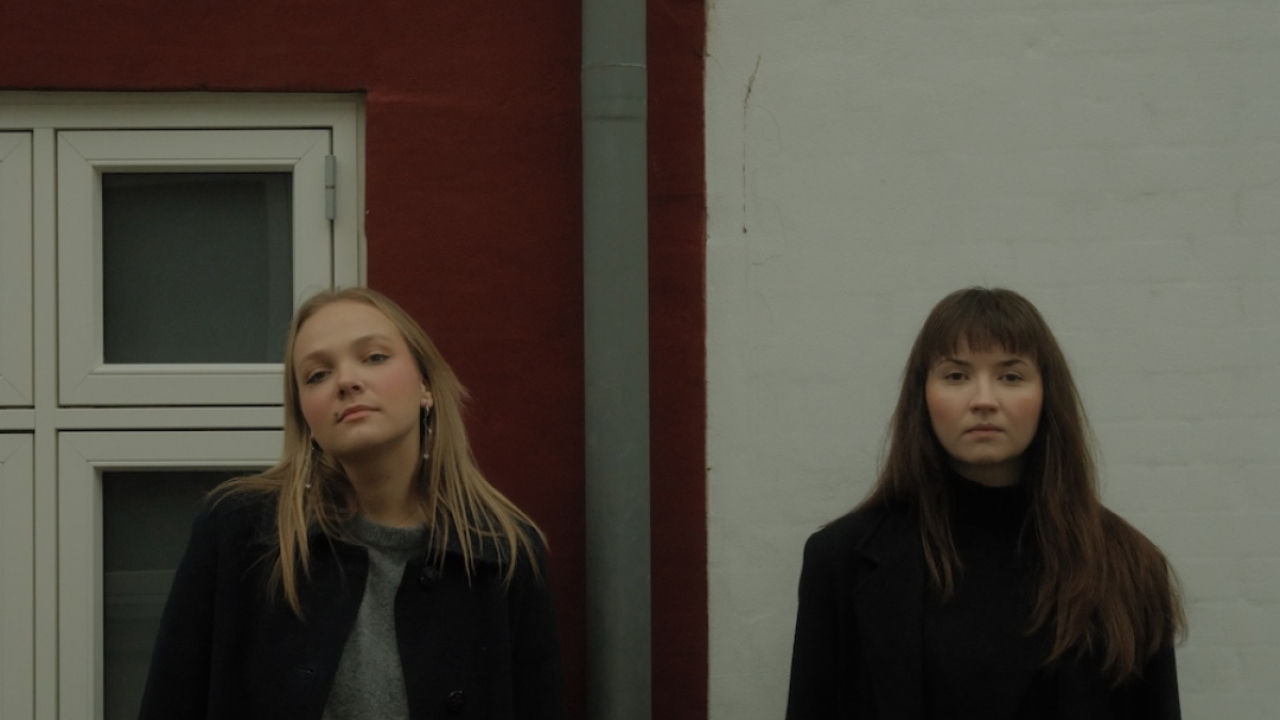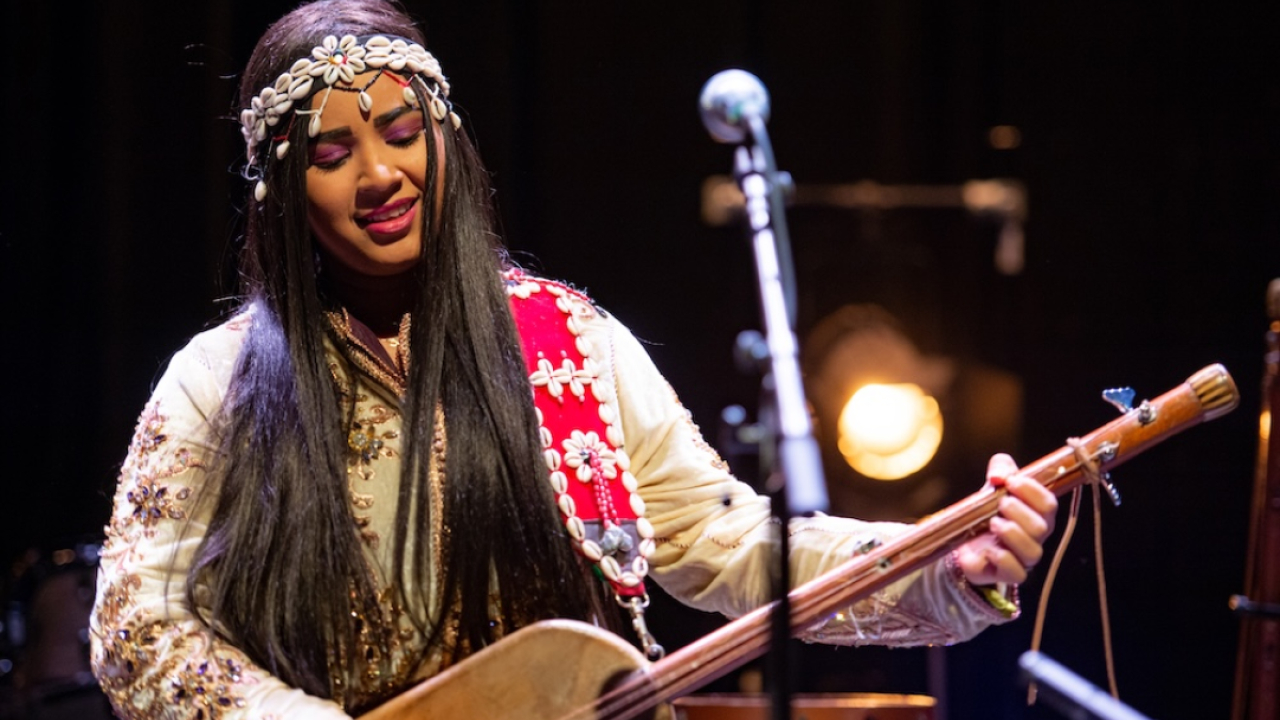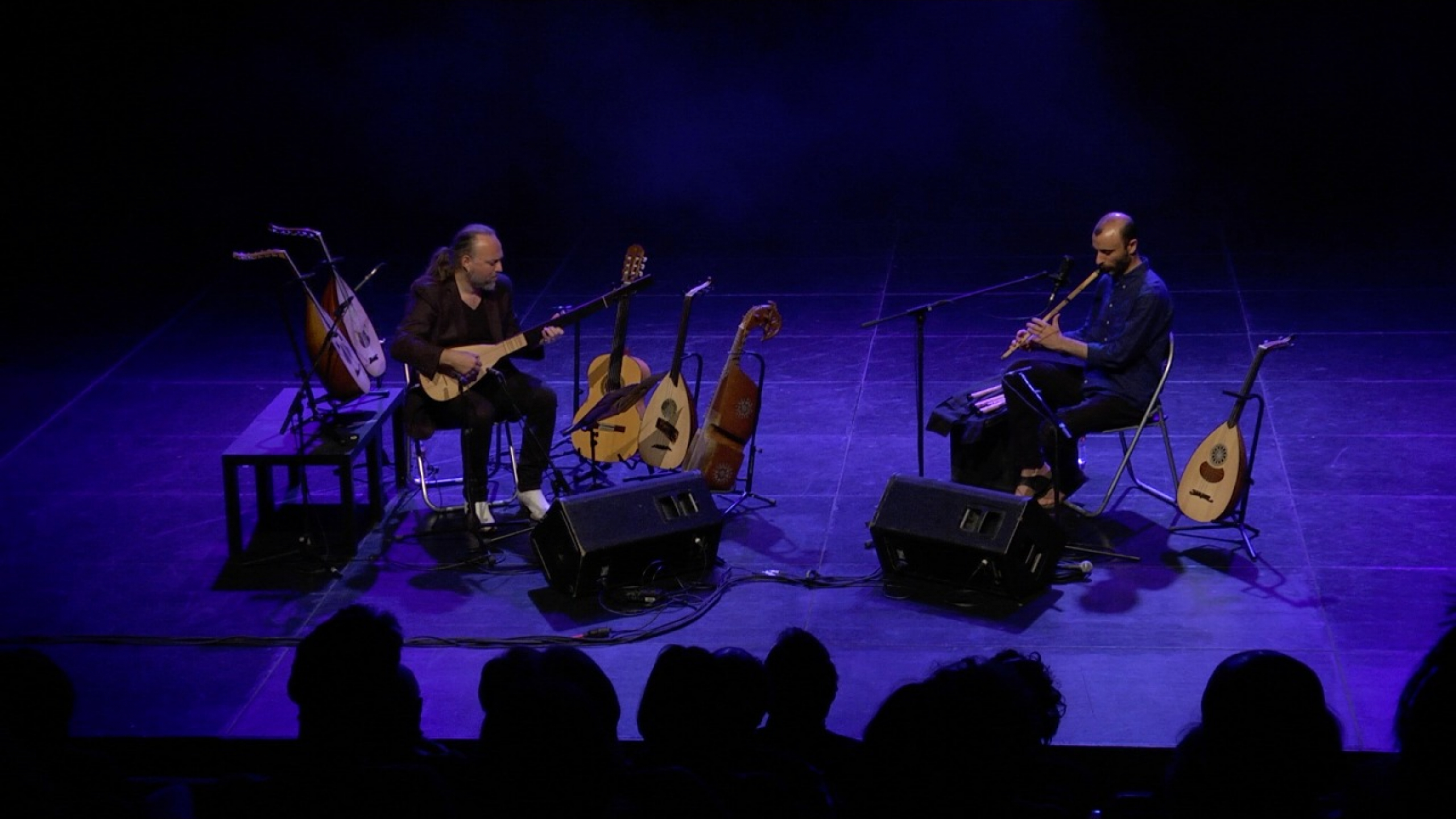
Efrén López: oud, lavta, båndløs guitar, oğur Sazı, afghansk rabab, tanpura &
Christos Barbas: tyrkisk neyfløjte, lavta
English text below:
Efrén og Christos er begge bosat i Spanien, hvor Efrén også stammer fra, mens Christos stammer fra Grækenland. Christos har besøgt os flere gange i forskellige grupper.
Efrén spiller på en forbløffende lang række af strengeinstrumenter fra det østlige Middelhavsområde og Afghanistan. Herunder den båndløse arabisk oud, den græske lavta (en slags oud med bånd), afghansk rabab, båndløs guitar m.v. Christos spiller også lavta samt tyrkisk neyfløjte, en kantblæst fløjte lavet af rørgræs og med et hornmundstykke og 7 fingerhuller. Den er også kendt fra sufiernes musik - de dansende dervisher, som også H.C. Andersen har beskrevet.
De to har spillet sammen i næsten 20 år, men deres første duoindspilning ”Atlas” kom først sidste år. De præsenterer her både komponeret og improviseret musik. Det er både egne kompositioner samt klassisk og folkelig musik fra bl.a. Grækenland og Tyrkiet, men også tidlig musik fra Spanien, som man eksempelvis kan høre det på et af de stykker der er linket til nedenfor – et stykke der stammer fra det 13. århundrede.
Et par smagsprøver:
https://www.youtube.com/watch?v=-ixyw_sOWxE (ney & oğur sazı)
og
https://www.youtube.com/watch?v=-qxQPqaIBME (2 x lavta)
Arrangeret af Papaya & Huset
Med støtte fra Kunstrådet, Aalborg Kommune & Kattegattnetværket
English text:
Efrén López: oud, lavta, fretless guitar, oğur Sazı, afghan rabab, tanpura &
Christos Barbas: Turkish ney flute, lavta
A new album by Efrén López and Christos Barbas is always good news, especially if it is the first one by their acoustic duet, culminating 18 years of shared musicianship and friendship. During this period they have collaborated in numerous projects & albums, groups like L’Ham de Foc, Yeden, Aman Aman, Abracadabra and countless concerts in the circles of Labyrinth Musical Workshop in Crete and elsewhere, Labyrinth being another collective home of theirs. On Atlas the two musicians reconnect with the power of the acoustic duet’s sound and its simplicity, through a series of primarily new compositions (Hoquetus, Sadaf, La Nau, Jasmin) and also melodies coming from medieval and ottoman classical traditions (“Ben volgra, s'esser poges”, “Kürdi Peşrev”), with a lot of space and time spent in textural and minimal improvisations. Through years of mutual interaction and shared knowledge, the duet has developed a kind of common vocabulary, a lexicon based on the musical disciplines that each of them have studied in parallel, that are juxtaposed in multiple points and combined with extensive spaces for improvisation, silence and meditation.
The album came into being after the invitation from their friend Constantino López, musician and sound engineer, based in Murcia, southern Spain, to participate in his novel discographic project "Primavera en el Atlas Colección". The collection consists in the edition of a limited series of records by different artists, created in such a way as to guarantee, above all, the reconciliation of the listener with the music in its purest and most natural state: it aspires to shed light on the art of musicians from a near and perhaps even personal angle by emphasizing the live interaction between musicians and the real feeling of playing together in the same space. Atlas is here - thus - an album name, the life project of Constantino, and also the title of the last track in the album composed by Efrén.
Atlas is many more things: it is the quest for the connection between greatness and smallness, between the supernatural and the natural, the link connecting the world of humans and that of gods; as the ancient greek myth has it, Atlas was a Titan condemned by Zeus to hold up the sky up on his shoulders, at the edge of the western world; another myth tells of how the Titan was turned into stone after an encounter with Perseus, his body transformed into the mountain range today found in Northern Morocco, the westernmost known end of the ancient world. Apart from the Titan giving his name to the Atlantic Ocean, and the maps of the world, we also find his trace inside the human body: Atlas is the name of the first vertebra of the spine, indeed supporting the entire head on the rest of the body. On the musical journey crossing the Atlas – as so many mythologies, religions and ancient philosophies around the word testify - sound and silence are seen as forces that not only create, but also keep the world together.

